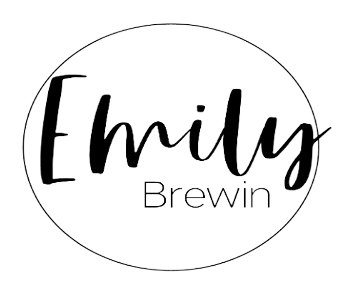
This week I pitched my first YA manuscript to a publisher at one of the ASA’s Literary Speed Dating sessions. Yep, the very same YA manuscript I wrapped up recently as part of a mentorship. I booked a last-minute spot with the publisher of my choice, celebrated, then realised all I had to do was write the perfect pitch. How hard could it be to write an elevator pitch!?
I only had three minutes to fill, after all. Three TEENY minutes… That’s nothing! I can wax lyrical about this particular manuscript until the cows come home; shed light on my characters’ motivations and deep-dive into themes. One of my secondary characters wears a tartan jacket. I can tell you which Scottish clan the pattern belongs to. Impressive, I know.
But it turned out that condensing all this amazing information into three hot minutes was much harder than anticipated…
Like dating…
Like actual dating, I had one chance to convince the person opposite that what I had to offer was worth considering. And, I didn’t even have alcohol to ease the process along.
Luckily for me, the ASA staff member who attended and my publisher-of-choice were lovely, and I survived the experience. Enjoyed it, even. Preparing the pitch forced me to think deeply about what makes my novel tick. It also prompted me to ponder where it might sit in the market and to identify what I think is unique about it (apart from the tartan, of course). All important considerations I didn’t necessarily contemplate while writing it.
So, while I wait to hear if I matched with the publisher I pitched to, I thought I’d pass on some of the handy tips I learnt along the way. Techniques that can be adapted for pitches of all descriptions; letters of introduction, grant applications or just to knock the smug smile off Uncle Kev’s face at Christmas when he asks AGAIN, ‘Finished that novel yet?’ Followed by, ‘Remind me, what’s it about?’
And, because we’re heading into the silly season, I’ve chucked in a bunch of writerly opps and comps as well.
HAPPY WRITING!
How to write an elevator pitch
- Read the pitch guidelines and adhere to them.
- Research the person or organisation you’re pitching to. Ensure they’re the right ‘fit’ for your book.
- KISS (Keep It Simple Sausage) – A pitch is about whetting the appetite, it’s not the main meal. What is your book about? This sounds like an easy question to answer, especially since you’re the author, but it’s often not. Ponder it awhile.
- Introduce yourself and your book at the beginning – your name and publishing background plus the book’s title and genre, even its word count.
- Anchor your listener straight up – start with your main character’s name, and the time and place the book’s set in.
- Stick to the main storyline – give a sense of the narrative arc, including setting, tension and resolution. Or, leave the pitch at a cliff hanger point or pose an intriguing question.
- Stick to the main character/s story – give a sense of their arc too.
- Mention the themes your book touches on.
- Provide comparable book titles. Be realistic though. It might be best to avoid comparing your work to Tolstoy’s War and Peace for instance.
- Tell the publisher why you think your book is a good fit for their list – this involves doing research beforehand.
- Be ready to answer questions about your book and your motivation for writing it.
- Relax and be yourself. Easier said than done, I know. But the fact you’ve written a damn book to pitch in the first place is a HUGE achievement. So own it, baby!
2021 Emerging Writers’ Festival Artist Call-Out!
Each year, EWF calls for storytellers of all kinds to submit expressions of interest in participating in the Festival. Applicants are invited to share not only their individual work, but their ideas for the events, topics and conversations that they want to be included within the festival.
To answer the call, apply here. Applications close 9th December 2020.
Tom Collins Poetry Prize 2020
The Tom Collins Poetry Prize was inaugurated by the Fellowship of Australian Writers (WA) to honour the contribution to Australian literature of Joseph Furphy who wrote Such is Life under the pen name, Tom Collins.
The Prize opens October 1st 2020, closes December 15th 2020.
Prizes: First $1000, Second $300, Third $100.
For more information or to enter, visit the Tom Collins Poetry Prize
Call for submissions! Kill Your Darlings: New Australian Fiction 2021
Got big plans for 2021? Why not start by submitting to KYD’s third print anthology of short fiction.
New Australian Fiction 2021 will showcase work from Australia’s best and brightest emerging and established writers.
Submissions will open on Monday the 11th of January and close on Friday the 26th of February. For more information on how to submit, visit KYD’s Submittable page.
2021 ASA Award Mentorship Program for Writers and Illustrators
Dates to remember:
- Entry opens 16th December 2020.
- Entry closes 31st January 2021
- Winners announced 3rd March 2021.
Get you skates on and go to the Australian Society of Authors for more information.
Ruby Green Illustration
Fascinated by gorgeous woman accompanying this post? To see her and other illustrations by the very talented, Ariana, go to Ruby Green Illustrations or visit Ari’s website, Goatlane Design.
Writing Sparks
Writing Sparks provides online writing courses designed to take your story idea from inspiration to publication. Whether you’d like to flesh out a character, develop a synopsis or write a novel, our online courses, mentorship and manuscript assessments have your back.
Writing Sparks centres on creating a vibrant online writing community through member forums, group workshopping and resource sharing.
To check out our courses and writing services, visit Writing Sparks. Or, for more information regarding my books and author services, visit my website.
ENJOY!



